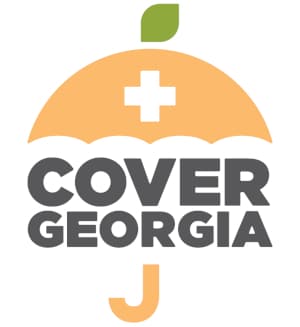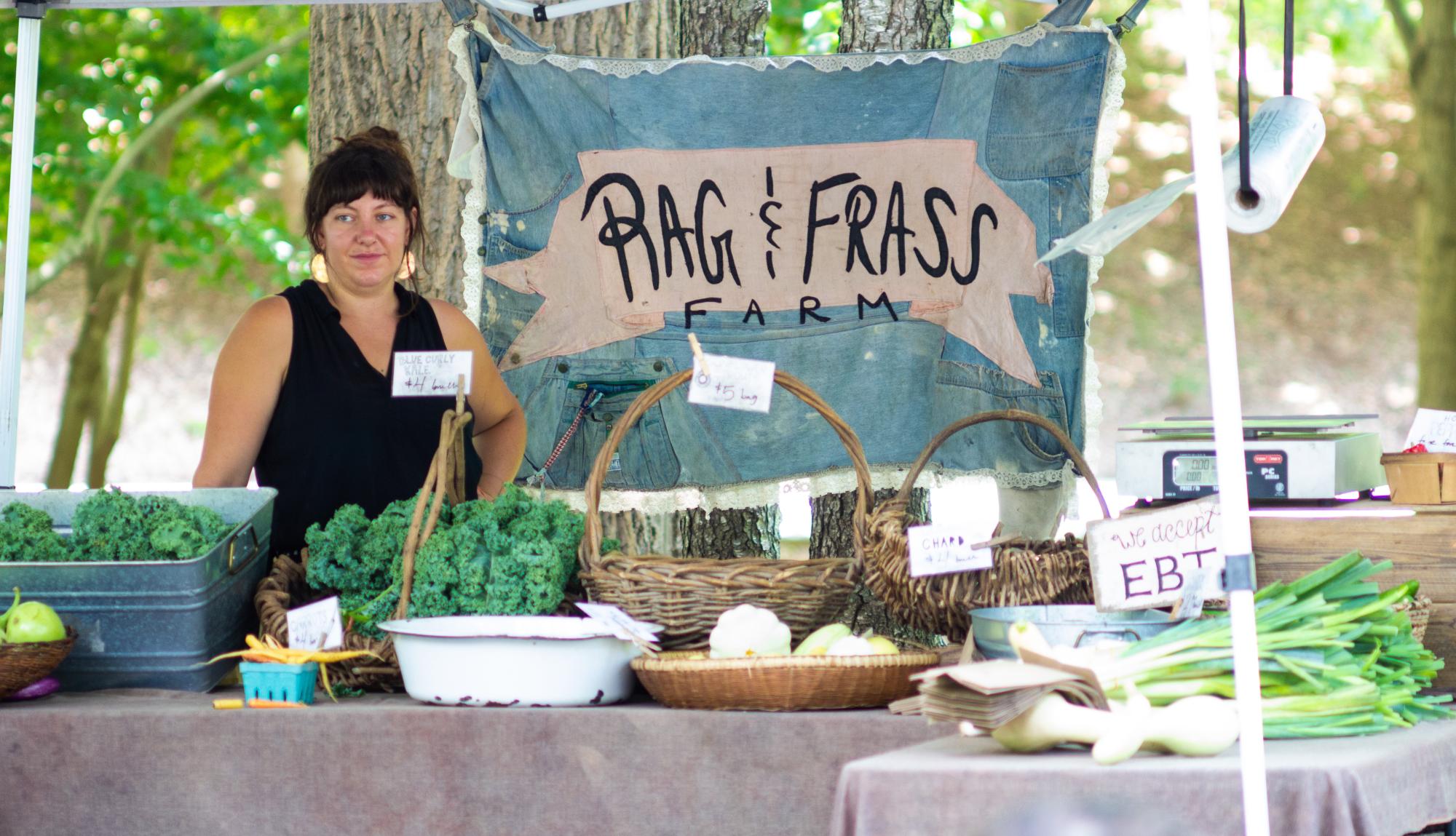Originally posted by the Georgia Budget and Policy Institute
Julia Asherman is a first-generation farmer who owns and operates Rag & Frass Farm in Twiggs County. Rag & Frass produces beautiful vegetables, fruits and specialty flowers for customers throughout Middle and North Georgia. “I feel like farming is just very fulfilling,” says Julia, “I’ve always been a plant person.”
As an entrepreneur and small business owner, Julia wears all the hats in her company. She works nearly 365 days a year to make her farm profitable in the face of uncertainty from weather, pests and markets. Julia leverages available tools like farm insurance to help mitigate risk for her business, but she hasn’t been able to protect the most important part of her farm: herself.
For years, Julia had no affordable health insurance options. She wasn’t eligible for Georgia’s restrictive Medicaid program and didn’t earn enough money to qualify for financial help to buy health insurance on the marketplace. Her health premium would’ve been $500 a month, almost twice what she pays for her mortgage.
“I have a farm insurance policy that covers if a tornado takes down a greenhouse, and I have liability that covers if someone gets sick from something I produce,” Julia says, “but I don’t have anything protecting me.”
Farming is a fundamental profession, yet agriculture is also one of the most dangerous industries in the country, according to the Centers for Disease Control and Prevention. Every day, about 100 agricultural workers suffer an injury that forces them to miss work. Farmers are nearly twice as likely to die on the job as police officers and five times as likely as firefighters. From tractors rolling over to snake bites, farmers face frequent threats to their health.
I have a farm insurance policy that covers if a tornado takes down a greenhouse, and I have liability that covers if someone gets sick from something I produce, but I don’t have anything protecting me.
“I’m on a tractor, I’m using heavy equipment, I’m on ladders,” Julia says. “I get on my own roof when I have to patch the roof. There are just a lot of risks.”
Up to 4,200 Georgia agriculture workers could gain affordable health insurance if state lawmakers expand eligibility for the state Medicaid program, according to a 2013 analysis by the Center on Budget and Policy Priorities. All told, Julia and 470,000 other Georgians could be covered through Medicaid expansion. For every one dollar invested by state leaders, Georgia would receive nine federal dollars back for health care. That’s a return on investment that any small business owner would love to have, according to Julia.
Georgia’s Medicaid program currently provides health coverage to almost 2 million residents, including about 1.3 million children and half a million Georgians who are blind, disabled or elderly. About 8 percent of Georgians who qualify for Medicaid are pregnant women or parents with dependent children and very low income (e.g., a family of three would have to bring in less than $6,612 a year to qualify).
Hear Julia’s story in her own words with this short video.

Julia saw these limits firsthand when she went to her local DFCS office to ask about Medicaid coverage for herself given her low income. “They actually told me that I would need to be blind or pregnant to get [Medicaid].”
Beyond the risks of injuries on the job that could cripple her farm, Julia hasn’t been able to afford basic preventative care like mammograms or physicals in recent years. She sees public investments in other local services and can’t figure out why health care solutions are ignored by state leaders. “I don’t understand why there’s a public library but nobody cares if I can get a mammogram.”
I see my health as vital to my farm’s existence and success. If I’m not healthy or able to work because I’m injured, that’s the thing that makes me worry about losing the farm.
While Julia has struggled for years to stay healthy and grow her business, state lawmakers have repeatedly rejected billions of federal dollars meant to pay for health coverage. Every year state lawmakers block Medicaid expansion, Georgia forfeits $3 billion to the federal government. Those dollars could be used to put an insurance card in the pockets of farmers and entrepreneurs like Julia. The majority of people who would be covered by Medicaid expansion are working.
Julia has persevered through all challenges that have confronted Rag & Frass farm thus far and cultivated a growing small business with customers across the state. Yet the biggest risk outside of her control gives her pause.
“I see my health as vital to my farm’s existence and success,” says Julia. “If I’m not healthy or able to work because I’m injured, that’s the thing that makes me worry about losing the farm.”
You can make a difference for Julia and 470,000 other Georgians by showing your support for Medicaid expansion. Contact your lawmakers today. And visit Rag & Frass to buy incredible produce and flowers!


